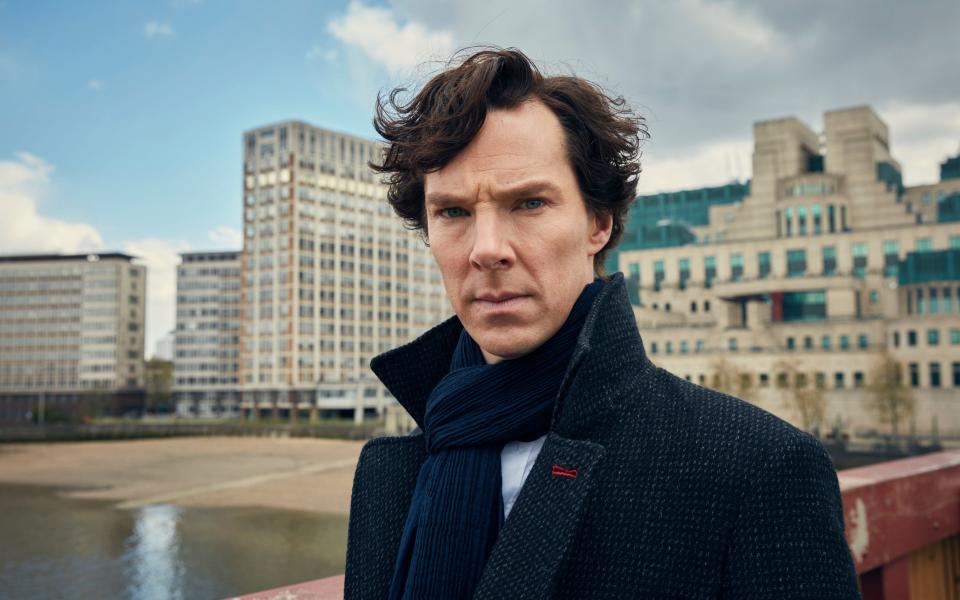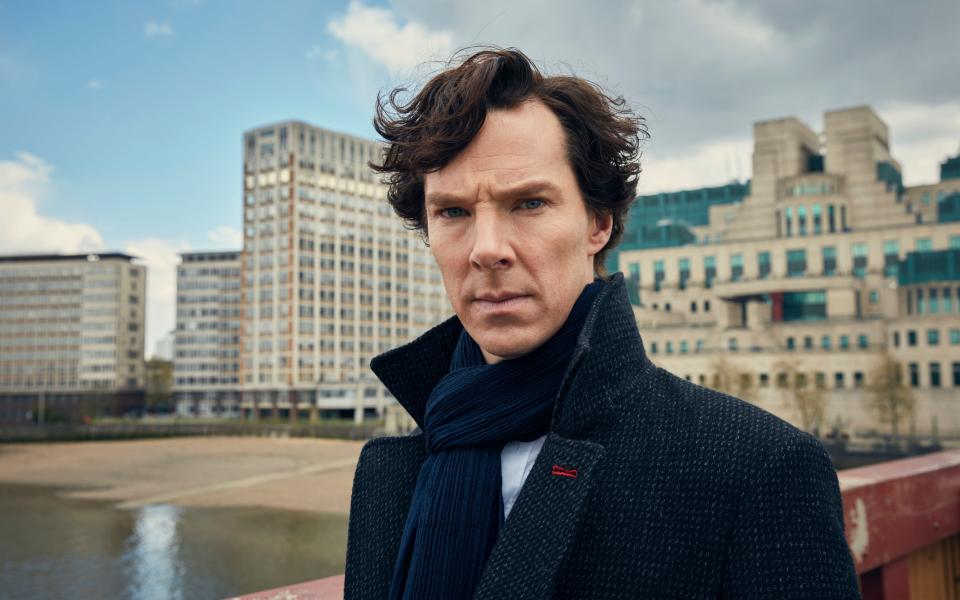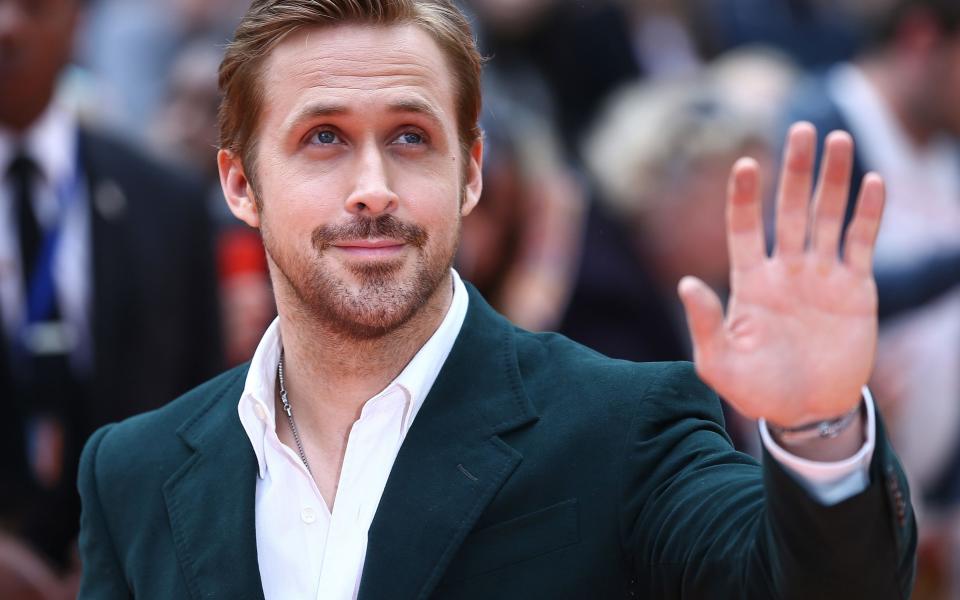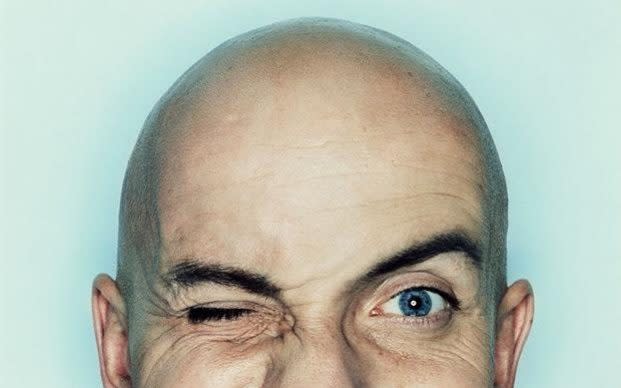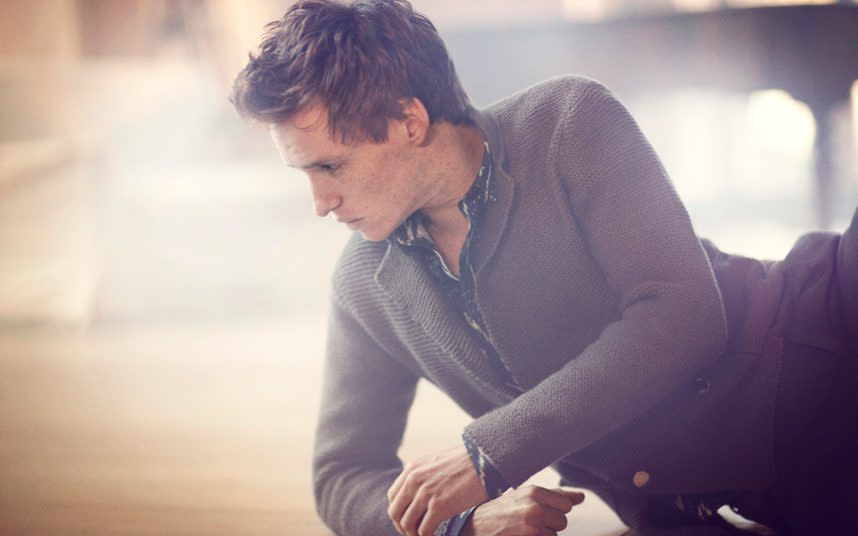The science of lust: What your crush says about you
When I was 15, I decided I was going to track down and marry Leonardo DiCaprio. I’d seen Titanic, had found the demise of his character unspeakably sad, and knew that the only way to get over the fictional death of the beautiful Jack Dawson was to meet and marry the real Jack – eg. Dicaprio.
Luckily it only took a few days of plotting for me to realise my plan was not going to work, though I continued to dream about those blond locks and blue eyes.
Embarrassing though the DiCaprio debacle is to retell, it was pretty standard – we now know that fantasy crushes play an established role in the imaginative lives of teens.
But as a new book on the history of heart-throbs by University of Sussex historian Carol Dyhouse suggests, the unattainable men we lust after – those gods of screen and boy-band – are more than psychological puzzle pieces.
Benedict Cumberbatch is not going to carry us up a mountain on his shoulder, but that’s OK because we can carry ourselves, thanks
They’re actually the clues to the status of women more widely, acting as a kind of feminist barometer over time. So as women have gained more economic and social power over the last century, who we fancy has also changed.
"As women get stronger they are freer to think about heartthrobs rather than husbands,’ says Dyhouse, who is an expert on the changing status of women throughout the 20th century.
"Patriarchy functions as a kind of protection racket. So where women are powerless, they tend to look to powerful men as protection. The stronger they get the more they can be interested in men as individuals.’
So the panting over Sherlock’s Benedict Cumberbatch, say, or Poldark’s Aidan Turner, is actually a sign of women’s progress. Cumberbatch in particular, despite his emotional dysfunctionality in character, and his strange, atypical features, seems alluringly clever and companionable in real life.
He’s not going to carry us up a mountain on his shoulder, or win any Most Handsome and Chiselled awards, but that’s OK because we find him interesting and quirky... and we can carry ourselves, thanks.
Fashions in lust changed particularly sharply in the swinging sixties, when objects of female passion came detached from the idea of 'husband material’ – you wouldn’t have wanted to bring George Harrison home to meet your mother, but boy did you fancy him.
By the 70s, as more girls were going to university and thinking about the future in terms of their own earning power, the more they were also liberated to pant after odd, sexually mysterious men who walked the line daringly between masculinity and femininity – think David Cassidy or Bowie. And today, girls’ fascination with the likes of Harry Styles from boy band One Direction, or pop crooner Justin Bieber, owes much to those boys’ curiously erotic mixing of the masculine and feminine.
Clearly, Hollywood has had a big hand in shaping our lusty tastes, and there’s a history here too. Thus wartime and the post-war period brought stoic quiet strong, chiselled male leads – think Cary Grant; Gene Kelly; Gregory Peck. In the politically muddy 1970s, less archetypal upstanding heroes emerged, while in the 80s, with Reagan and Thatcher in power, and Wall Street and the City booming, we embarked on an era of muscle hunks like Sylvester Stallone.
Many of us fancy men who fit certain types: muscle-bound hunks, silent and rugged, troubled geniuses. But our libidos can also go off-piste in surprising ways
But in the 1990s, noughties and 2000s, it’s been the Ryan Goslings and Channing Tatums of the world we’ve wanted. These guys give the modern woman – sexually and emotionally liberated – what a Hollywood screenwriter friend calls 'the total package arena’: sensitive hunks, with an arty flair, both in and out of character. It seems we want men like this in real life too.
A recent survey of the most popular Tinder profiles shows soulful, sensitive-looking men with good bodies, searching expression and a job in the arts. (NB: The most popular women are a little more predicable: young, thin with big breasts shown off in duck-faced selfies, looking seductively at the camera).
So if our crushes tell us something about our place in history, what do they say about us as individuals? The answer is plenty. According to Edinburgh-based relationships therapist Val Sampson, heartthrobs are the first-responders to the whims and contradictions of desire.
In the first place, this is because they’re 'basically safe’. Harry Styles or Ryan Gosling won’t reject you. In the case of young women in particular, says Sampson, boy band crushes provide a 'good transition to adult sexuality, a chance to work out, what are these slightly sexual feelings I’m having’ prior to actually being ready for a sexual relationship.
As we get older, we can use heartthrobs as pleasurable fantasy to be incorporated into a healthy sex life. 'Lots of women, because they have such a busy life, end up not really thinking about sex at all, but actually it’s quite healthy to think about sex on a regular basis,’ Sampson says. 'The brain is the sexiest organ in the body, and a heartthrob can play a useful role in maintain connection with your sexual self’.
Many of us fancy men who fit certain tried and true types: muscle-bound hunks, silent and rugged, troubled geniuses, crooners. But our libidos can also go off-piste in surprising ways.
For instance, a recent study from the University of Amsterdam found that many women actually fancy portly older divorced men. Having got the 'not husband material’ types out of their system, the appeal of someone who knows the domestic ropes can be strong.
Boy band crushes provide a good transition to adult sexuality, prior to actually being ready for a relationship
Then there are also surprising soft spots among women for the likes of Andrew Marr, Louis Theroux and Michael Palin. When, following Brexit, I posted on Facebook a newfound crush for Mark Carney, head of the Bank of England, I was told to 'join the queue’. (For men, surprising lust-sparkers include the likes of Dawn French and Deborah Meaden).
But there’s still a logic to our lusts. Take Carney. As head of the Bank of England, he provided a figure of calmness and strength in the chaos of Brexit. Theroux and Marr have brains and character: cleverness is a big attraction for the modern women confident in her own intelligence.
Paul Hollywood from Bake Off, another favourite particularly among older women, is ok looking and macho, but more importantly has a creative skill. And Gosling’s combination of emotional broken-ness and hidden talent in La La Land makes him irresistible – in general, notes Sampson, a good indicator of crushability in a man is the ability to play the piano.
So it’s clear that lust is a many-armed beast. Here we’ve picked six archetypal heartthrobs for the 21st century woman – and what they say about you.
What your crush says about you
1. The 'lost’ boy (usually with a hidden talent)
For example: Benedict Cumberbatch as Sherlock, Ryan Gosling in La La Land
What it says about you: You want to 'save’ him and crave the intense feeling of importance that comes from doing so. On some level, you imagine that only you hold the key to this man’s self-knowledge and understanding and once you’ve unlocked it he’ll love you deeply forever.
2. The tousled father figure
For example: Pierce Brosnan, George Clooney, Liam Neeson, Ian McKellen
What it says about you: Heartthrobs are often the loving father or brother we always dreamed of but never quite had. These ones remind you of that loving man supporting and standing by you unconditionally.
3. The overweight, balding divorcee
For example: "Richard from Surrey, father-of-four"
What he says about you: This man is not hot, but damn is he good. And that’s what you like about him. Women who have had their share of dramas with more typically handsome men but who realise the value of a genuine help-meet around the house and a good father find themselves mooning after this type.
4. The boyband type
For example: Harry Styles, Justin Bieber
What he says about you: You aren’t ready for a real relationship. This is a relationship with a boy that is utterly safe and contained, and precedes falling for a real boy.
5. The troubled genius
For example: Eddie Redmayne, Christian Gray from Fifty Shades, Matt Damon in Good Will Hunting, Geoffrey Rush in Shine
What it says about you: You are drawn to powerful men, but prefer brains over brawn. Being with a genius also reflects well on your own intelligence, and you like the idea of being the one who 'gets’ him and can liberate his genius.
6. The classic beefcake, with a twist
For example: Paul Hollywood, Russell Crowe
What it says about you: You’re drawn to the old-school, primeval erotic allure of the powerful man – powerful on the most basic level. You crave physical strength for or of two reasons: first, you see yourself as a 'real woman’ who wants a 'real man’, or second, you’re insecure about your own prospects, and crave protection.

